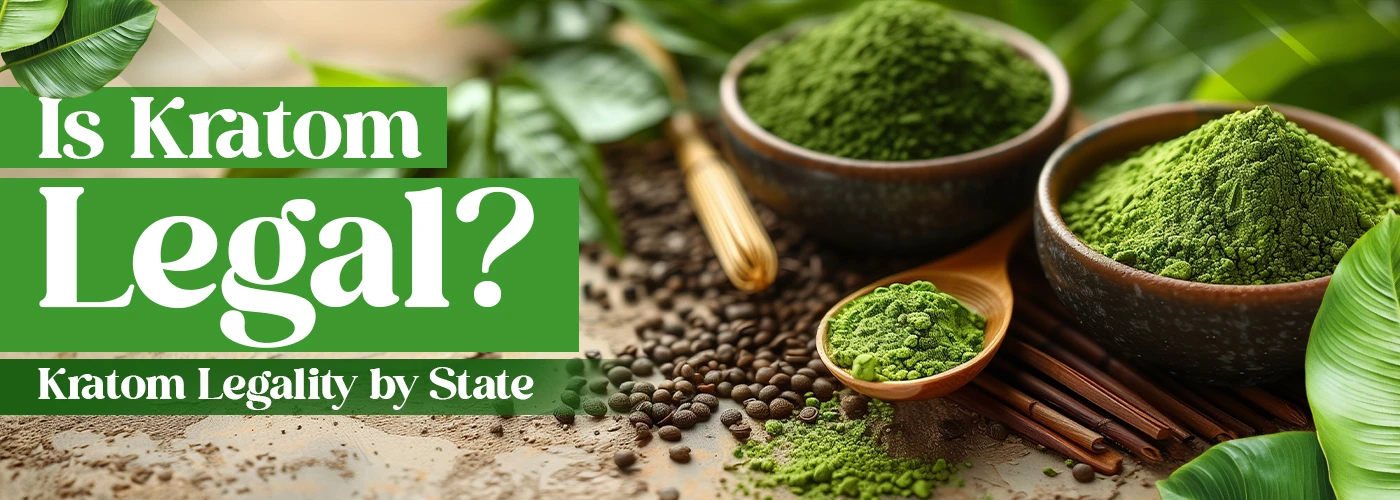Looking for kratom? You will find it from various sources, from specialty stores to smoke shops and even in farmers’ markets. The widespread availability is commendable, but since many people use it as an alternative to various general medications, you might have wondered, “Is it legal?”.
This guide is designed to help you understand kratom’s legality and everything else you need to know about it.
What is Kratom?
Mitragyna Speciosa, or kratom, is a tree native to Southeast Asia, growing widely in Indonesia, Malaysia, Thailand, and Papua New Guinea. Users typically chew the leaves or make tea out of them, using them as mood boosters, energy boosters, and discomfort relievers. Kratom is also known for its psychoactive properties, which explain the mood enhancement people experience upon consumption.
Today, kratom products come in many forms – powder, capsule, extract, etc. A significant number of people in the USA have become fond of its soothing and vitality-enhancing capabilities.
According to some, the active ingredient in kratom varies by plant, which makes its effects unpredictable. This unpredictability adds to the risk of side effects. However, kratom has many advocates who are actively fighting for its legality. The most notable movement, the Kratom Consumer Protection Act (KCPA), would protect kratom’s legality in a state while letting regulators establish restrictions like minimum age.
Some states have enacted laws to protect consumers against unregulated products, which might include synthetic kratom, while some states have passed KCPA bills.
Is Kratom Legal?
Kratom is a federally unregulated substance. No government body checks or approves kratom products, but it is technically legal at the federal level. Some states and municipalities have banned the substance, making it illegal to grow, sell, or possess, while others have imposed age restrictions.
Let’s look at the legality and regulations surrounding kratom across states:
Kratom is Illegal In:
- Arkansas
- Alabama
- Rhode Island
- Indiana
- Wisconsin
- Vermont
Kratom May be Regulated, But Is Legal In:
- Arizona – KCPA
- Alaska
- Colorado – But illegal for human consumption in Denver
- California – But banned in San Diego
- Connecticut
- Delaware
- Florida – But banned in Sarasota County
- Hawaii
- Georgia – KCPA
- Idaho
- Iowa
- Illinois – But prohibited in Jerseyville, Alton, Glen Carbon, and Edwardsville
- Kentucky
- Kansas
- Maine
- Louisiana
- Maryland
- Michigan
- Minnesota
- Massachusetts
- Mississippi – But banned in Union County
- Montana
- Missouri
- Nevada – KCPA
- Nebraska
- New Mexico
- New Jersey
- New Hampshire – Legal for those above 18
- New York
- North Dakota
- North Carolina
- Oklahoma
- Oregon
- Ohio
- Pennsylvania
- South Dakota
- South Carolina
- Texas
- Tennessee – Legal for those above 21
- Utah – KCPA
- Washington
- Virginia
- West Virginia
- Wyoming
Why is Kratom Considered Illegal in Some States?
For the same reason as fries and burgers – they make you feel good, and many people choose to live on them. As we all know, too much of anything can have negative effects. Just like overconsumption of junk food leads to negative results, kratom’s relaxing and stimulating properties make it prone to overuse and abuse, with the potential to be addictive.
Kratom has been used traditionally for generations in Southeast Asia for its potential medicinal properties. It contains several active compounds, the most notable ones being mitragynine and 7-hydroxymitragynine. They interact with the brain’s opioid receptors to produce effects like relaxation or an energy boost based on dosage.
However, it hasn’t been widely researched, and the U.S. Food and Drug Administration (FDA) has not approved it for medical use. Since there is a lack of regulatory clarity, the debate over its safety and legality is ongoing.
Final Thoughts
The kratom landscape changes frequently in terms of legality, and the future is uncertain. Those in favor of kratom and its natural benefits push for responsible regulation instead of bans. As long as products are unadulterated, safe, and consumed in moderation, kratom can stay on the market.



